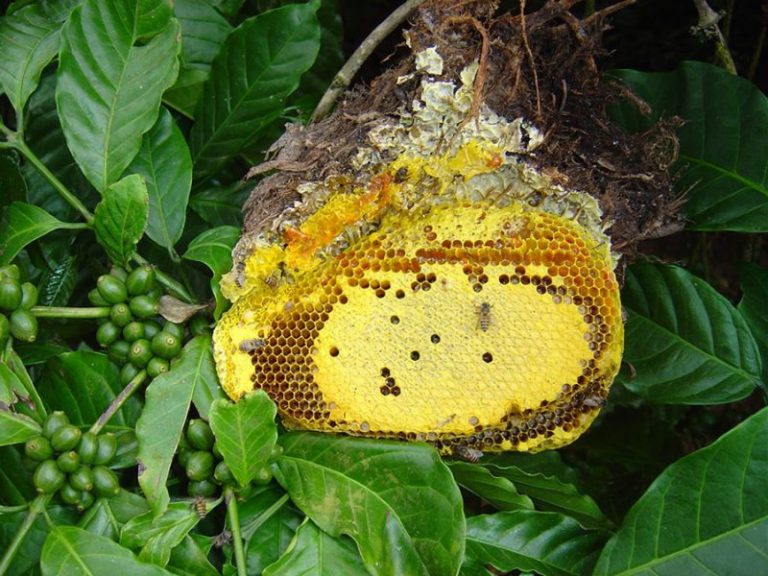
Coffee Farming And Beekeeping: Diversifying To Save A Natural Partnership
Diversification in specialty coffee farming means introducing new products to the farm so that coffee isn’t the farmer’s sole source of income. Intercropping of coffee with other viable crops, alongside the embracing of bee keeping has been described as a natural partnership that doesn’t just bring in extra, much-needed income for farmers – it’s also a helpful way of protecting crops from natural diseases.
According to M. Fury in the article “Diversification in Specialty Coffee Farming: The Agricultural & Economic Case” (https://bit.ly/2m7JtyW), over 125 million people around the world are involved in the coffee farming industry. Yet coffee is susceptible to high degrees of fluctuation in its prices, leaving a tremendous number of those people vulnerable. Part of the solution to this may be diversification. Diversification can give farmers a steadier income, as well as helping to make the coffee industry more stable.
By carefully managing the ways multiple crops are planted together (intercropping), physical barriers can be created to stop the spread of disease. This also promotes biodiversity, as certain other crops release byproducts complementary to the growth of other crops.
IWCA Uganda Chapter President, Hon. Victoria Sekitoleko is a strong advocate for the integration of bee keeping in coffee farming. In an age where the continued use of sprayed chemicals in weed and pest control has dramatically reduced bee populations that ever before, the introduction of bee keeping along coffee agribusiness is timely.
Besides from the economic benefits of bee keeping as a complimentary source of income—through the sale of the much-needed honey, propolis and other bee products, bees play an essential role in the process of pollination, which translates into better yields for coffee farmers. All of this leads to a healthier overall ecosystem, meaning that diversification isn’t just a backup for coffee. It also helps the coffee industry to thrive.
Pimentel, in an article “Coffee Farming & Beekeeping: Solution to Endemic Pest Species & Genetic Diversity? (https://bit.ly/2kGlIO4), talks about bees as living wonders, having been around over 100 million years ago, emphasizing their crucially potential help in the coffee world. “Bees are nature’s primary pollinator and are perfectly adapted to the conditions found on coffee plantations, states Pimentel.
The experiences provide a wakeup call to coffee farmers to keep it natural and keep it simple. Diversification through bee keeping is good for the coffee, good for the planet, and good for the consumer.
